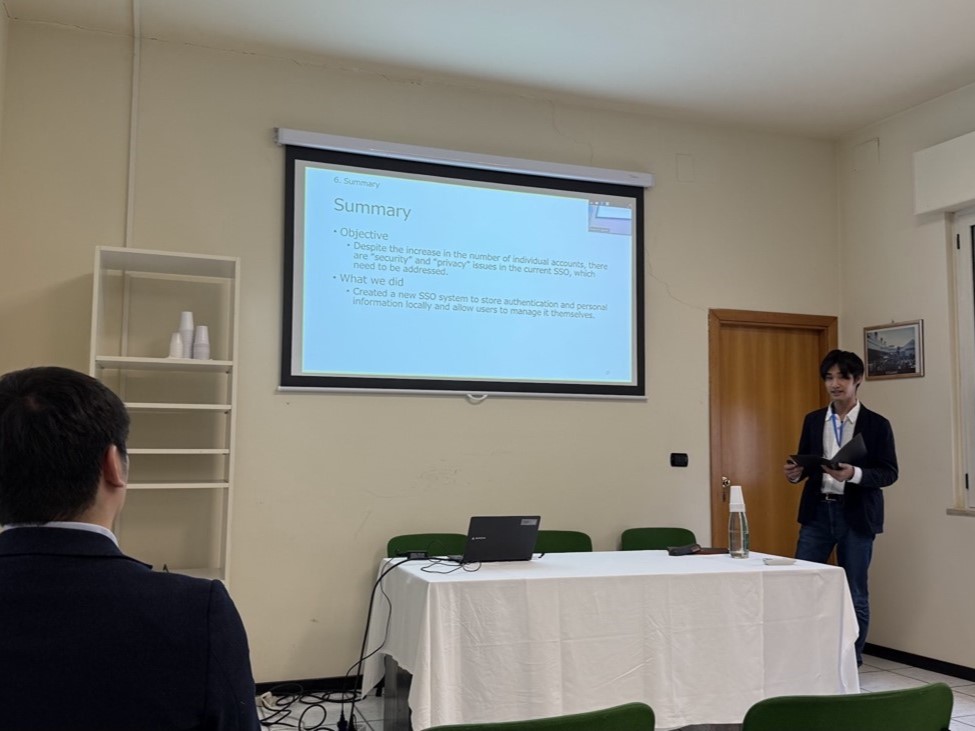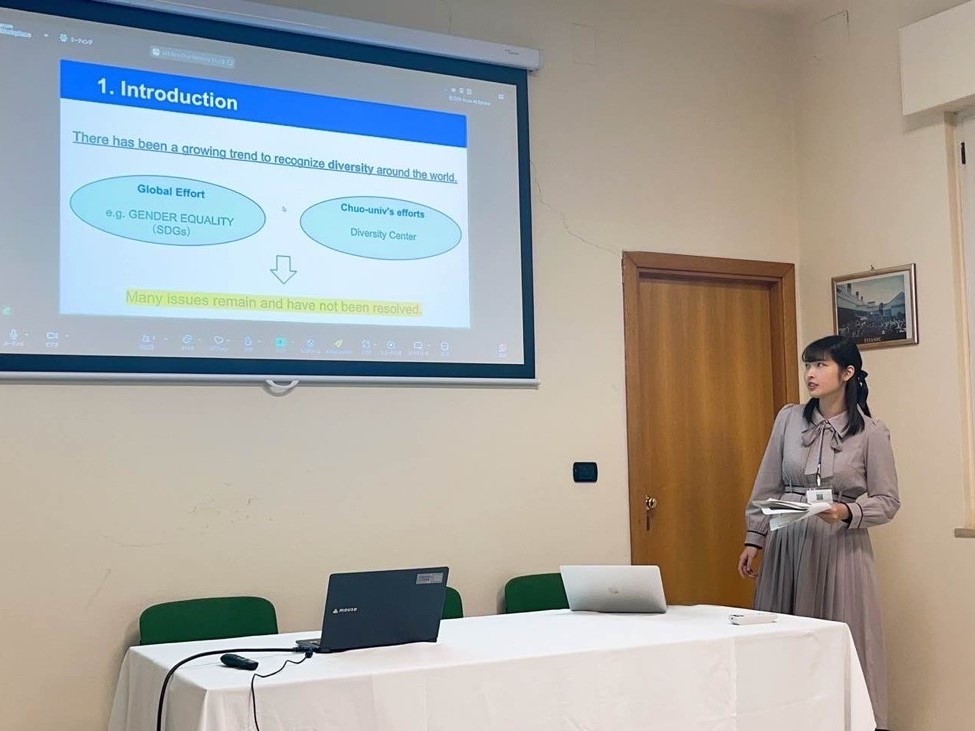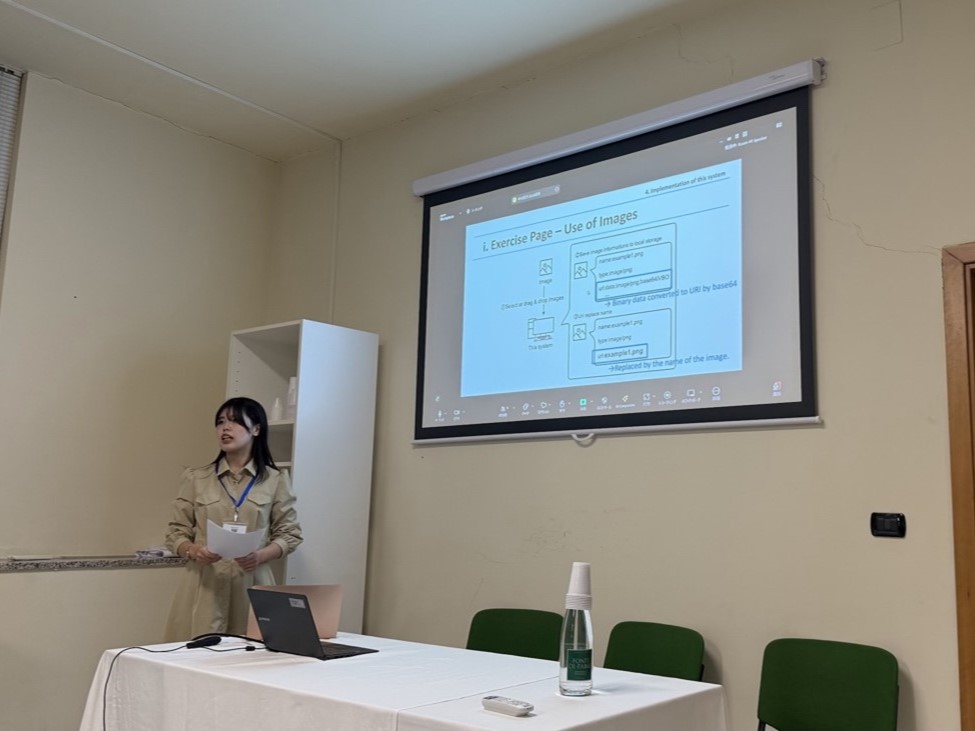2024.12.02
News
Faculty of Global Informatics’ Students Give Presentations at International Conference in Italy
The Masaki Kohana Laboratory of the Faculty of Global Informatics studies web-based systems including developments of applications and services.
Three students from the Kohana Laboratory gave presentations at the 19th International Conference on P2P, Parallel, Grid, Cloud and Internet Computing (3PGCIC-2024).

Presenter: HOSODA Yoshiki (Senior year, Faculty of Global Informatics)
Title: Single Sign-on System with Local Personal Information Store
Co-author: KOHANA Masaki (Associate Professor of the Faculty)
Abstract: The management of multiple accounts is becoming an issue alongside the increase in the number of web services. Despite there being many cloud-based single sign-on systems, there is a risk of usage restriction due to personal information breaches or service closure. This study suggests a single sign-on system in which a user can manage one’s personal information on a local server.

Presenter: SATO Miyu (Senior year, Faculty of Global Informatics)
Title: A Community Web System for LGBTQ+ Students with Identification
Co-author: KOHANA Masaki (Associate Professor of the Faculty)
Abstract: There are many communities or services dedicated to LGBTQ+ but most of them are not youth-friendly, and there remain a mountain of security issues, especially for the services accessible to minors. This study develops a community site for young LGBTQ+ ensuring users a sense of security by adopting an authentication process and others.

Presenter: NAKAMURA Yoshino (Senior year, Faculty of Global Informatics)
Title: A Learning Web System for Website Development
Co-author: KOHANA Masaki (Associate Professor of the Faculty)
Abstract: Quite a few junior and high school students want to acquire programming skill as today’s students have many opportunities to enjoy programming or coding. However, the programming language can be complicated for beginners, and there are a few professionals who can teach. In this study, we have developed a teacher-free programming learning system for beginners. The system is designed to use less technical words and complicated codes, as well as visually understandable where the learned languages are used. The system aims for students to enjoy learning programming.
